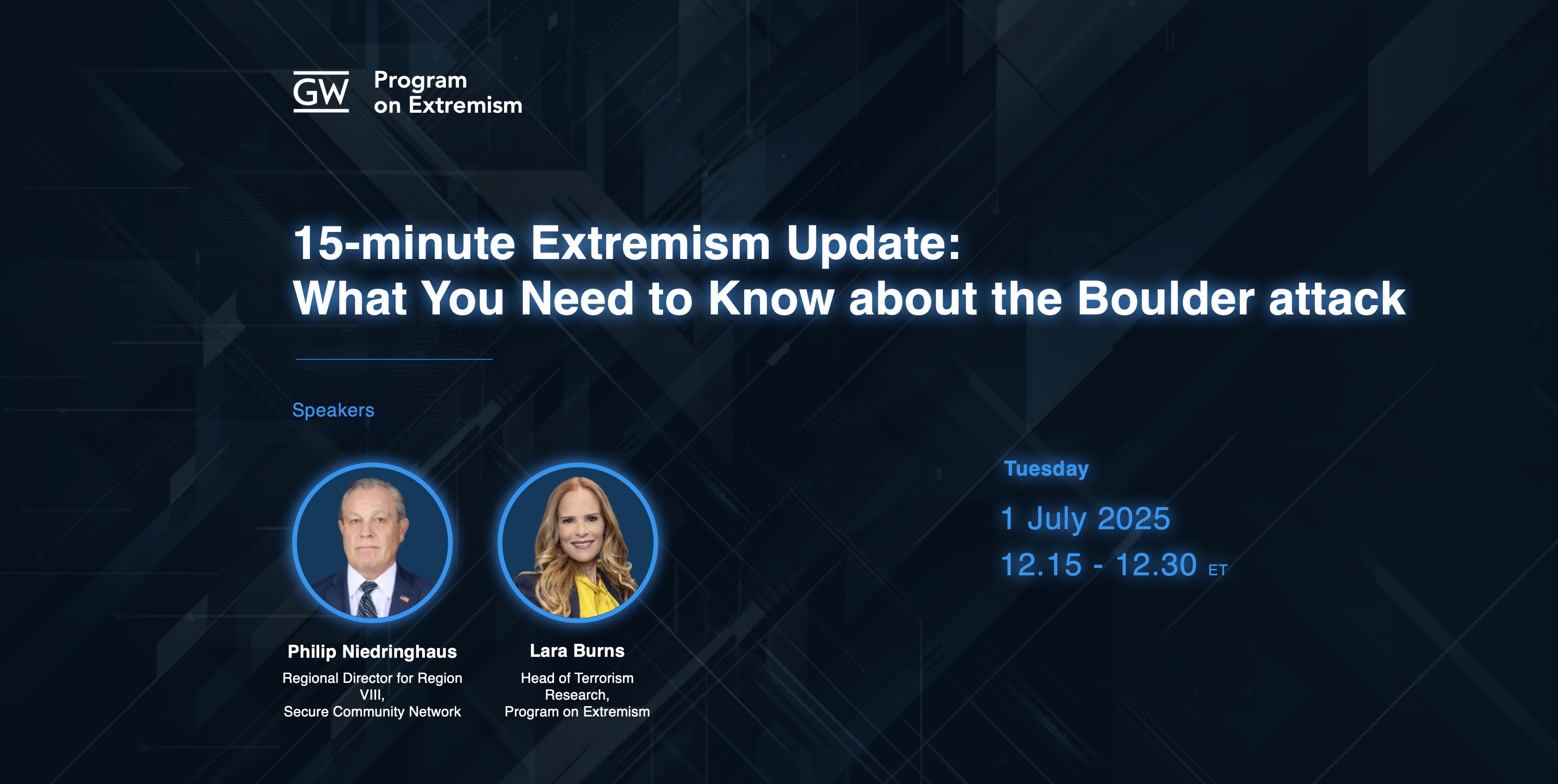15-minute Extremism Update
What You Need to Know about the Boulder attack
The Program on Extremism held a 15-minute talk examining the recent firebomb attack in Boulder, Colorado. On June 1, 2025, a man launched Molotov cocktails at a peaceful pro-Israel gathering, injuring multiple elderly participants, including a Holocaust survivor. Lara Burns, Head of Terrorism Research at the Program on Extremism was joined by Philip Niedringhaus, Regional Director for Region VIII for Secure Community Network, to walk through the key events of that day, the impact on the victims, and what we’ve learned about the attacker - his background, ideology, and the federal hate crime charges now filed against him.
On July 1, 2025, the Program on Extremism (PoE) at The George Washington University hosted a 15-minute briefing focused on the June 1 firebombing attack on Boulder’s Run for Their Lives (R4TL) chapter in Colorado. The attack killed one person and injured more than a dozen others. The discussion featured Philip Niedringhaus, Regional Director for Region VIII for Secure Community Network, and Lara Burns, PoE’s Head of Terrorism Research.
Niedringhaus began by providing context on the group targeted and the victims of the attack. Boulder’s R4TL chapter was conducting its weekly march advocating for the release of Israeli captives taken during the October 7, 2023, terror attack, when an assailant threw Molotov cocktails at the group. Among the 29 people present at the march, 13 were injured. One of the firebombing victims, 82-year-old Karen Diamond, succumbed to her injuries on June 30. The attacker, 45-year-old Mohamed Sabry Soliman, an Egyptian national who had overstayed his U.S. visa, had reportedly surveyed the group for over a year and meticulously planned the attack.
Soliman, a resident of Colorado Springs, disguised himself as a gardener to avoid suspicion, concealing his weapons in a wagon and backpack. Niedringhaus stated that, according to law enforcement, Solimon shouted anti-Zionist messaging and “Free Palestine” during the assault; indicating his actions were politically motivated by the ongoing conflict in Gaza. He reportedly viewed anyone who supported Israel as a Zionist.
The event concluded with a discussion about balancing First Amendment freedoms with public safety, particularly in the context of scheduled protests with an online presence. Burns and Niedringhaus emphasized the importance of situational awareness and the value of a “see something, say something” approach to community security.

